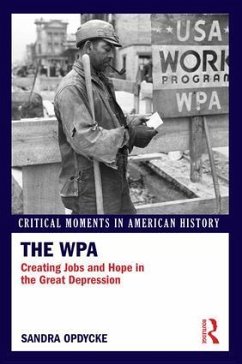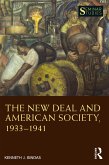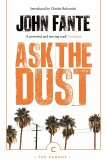Established in 1935 in the midst of the Great Depression, the Works Progress Administration (WPA) was one of the most ambitious federal jobs programs ever created in the U.S. At its peak, the program provided work for almost 3.5 million Americans, employing more than 8 million people across its eight-year history in projects ranging from constructing public buildings and roads to collecting oral histories and painting murals. The story of the WPA provides a perfect entry point into the history of the Great Depression, the New Deal, and the early years of World War II, while its example remains relevant today as the debate over government's role in the economy continues.
In this concise narrative, supplemented by primary documents and an engaging companion website, Sandra Opdycke explains the national crisis from which the WPA emerged, traces the program's history, and explores what it tells us about American society in the 1930s and 1940s. Covering central themes including the politics, race, class, gender, and the coming of World War II, The WPA: Creating Jobs During the Great Depression introduces readers to a key period of crisis and change in U.S. history.
In this concise narrative, supplemented by primary documents and an engaging companion website, Sandra Opdycke explains the national crisis from which the WPA emerged, traces the program's history, and explores what it tells us about American society in the 1930s and 1940s. Covering central themes including the politics, race, class, gender, and the coming of World War II, The WPA: Creating Jobs During the Great Depression introduces readers to a key period of crisis and change in U.S. history.
Reviewer #1: Jason Scott-Smith, University of New Mexico, USA: "I strongly recommend this book for publication and would use the book in my courses. As I indicate in my previous comments and observations, it is well-designed and fills a niche in a way that no other current book does."
Reviewer #2: Margaret Rung, Roosevelt University, USA: "I recommend this book for publication and would certainly consider using it in one of my classes as I frequently teach on the Great Depression, New Deal and World War Two, covering all of the themes mentioned in the book proposal. For me, the strength of this WPA study is its comprehensive approach to the program as well as its contextualization of the program in the era's main debates (many of which continue to resonate in American society and politics). ... Thus, the book speaks not simply to the specific history of the WPA, but also to broader concerns."
Reviewer #2: Margaret Rung, Roosevelt University, USA: "I recommend this book for publication and would certainly consider using it in one of my classes as I frequently teach on the Great Depression, New Deal and World War Two, covering all of the themes mentioned in the book proposal. For me, the strength of this WPA study is its comprehensive approach to the program as well as its contextualization of the program in the era's main debates (many of which continue to resonate in American society and politics). ... Thus, the book speaks not simply to the specific history of the WPA, but also to broader concerns."
Reviewer #1: Jason Scott-Smith, University of New Mexico, USA: "I strongly recommend this book for publication and would use the book in my courses. As I indicate in my previous comments and observations, it is well-designed and fills a niche in a way that no other current book does."
Reviewer #2: Margaret Rung, Roosevelt University, USA: "I recommend this book for publication and would certainly consider using it in one of my classes as I frequently teach on the Great Depression, New Deal and World War Two, covering all of the themes mentioned in the book proposal. For me, the strength of this WPA study is its comprehensive approach to the program as well as its contextualization of the program in the era's main debates (many of which continue to resonate in American society and politics). ... Thus, the book speaks not simply to the specific history of the WPA, but also to broader concerns."
Reviewer #2: Margaret Rung, Roosevelt University, USA: "I recommend this book for publication and would certainly consider using it in one of my classes as I frequently teach on the Great Depression, New Deal and World War Two, covering all of the themes mentioned in the book proposal. For me, the strength of this WPA study is its comprehensive approach to the program as well as its contextualization of the program in the era's main debates (many of which continue to resonate in American society and politics). ... Thus, the book speaks not simply to the specific history of the WPA, but also to broader concerns."








